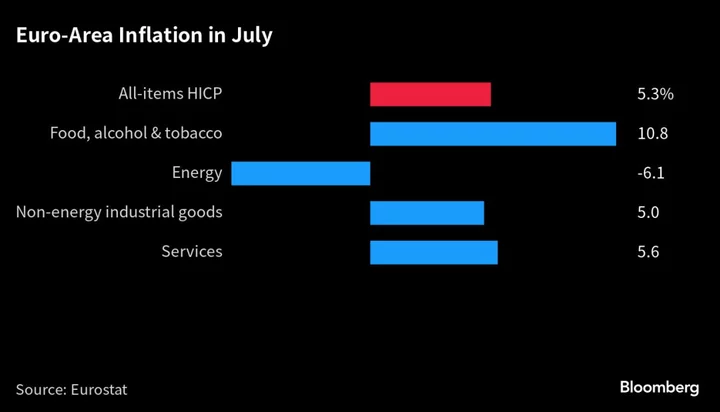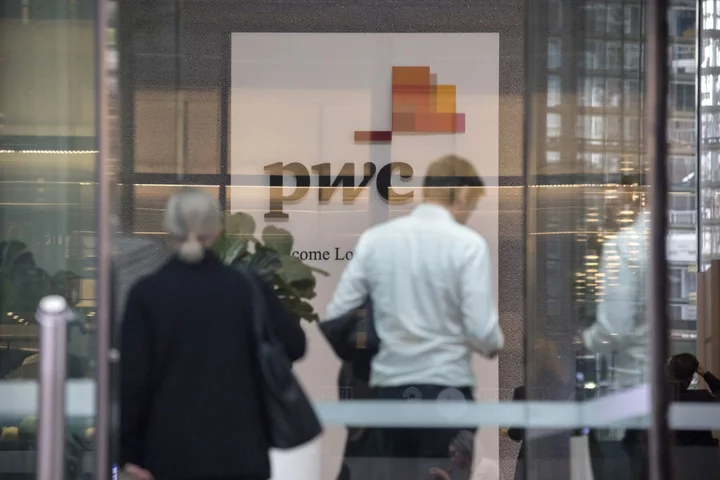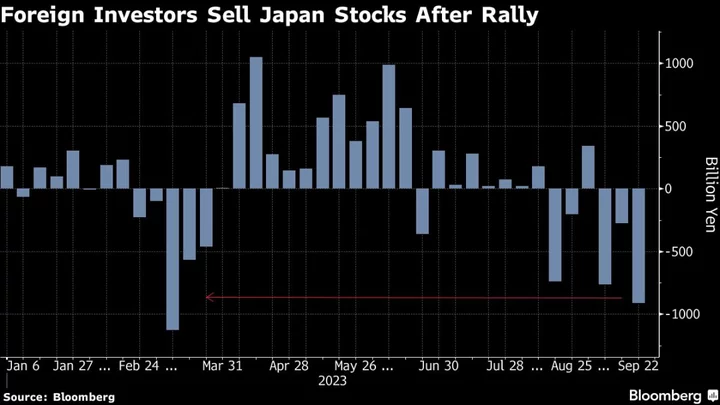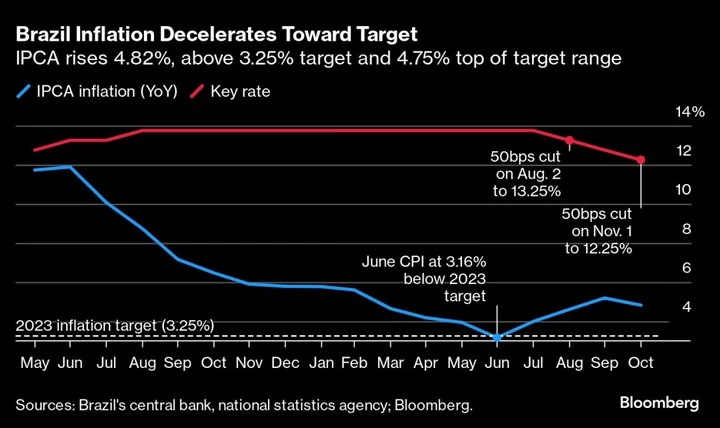The euro-area economy returned to growth while underlying inflation pressures persisted — supporting early arguments for the European Central Bank to raise interest rates again.
Second-quarter gross domestic product advanced by 0.3% from the previous three months after shrinking and stagnating in the two earlier periods, according to Eurostat data published Monday. A Bloomberg survey of economists saw an increase of 0.2%.
A separate release showed consumer prices rose 5.3% from a year ago in July, as expected. But in a sign of lingering dangers, the closely watched underlying inflation measure that excludes volatile costs like food and energy overshot estimates by a touch to stay at 5.5%, surpassing the headline gauge for the first time since 2021.
German bonds stayed lower after the data, leaving the yield on two-year debt — among the most sensitive to changes in monetary policy — two basis points higher at 3.07%. Money markets kept maintained odds of about 70% on a further quarter-point rate increase by year-end.
While the euro zone’s GDP number looks encouraging, it was buoyed by a bumper three months from Ireland, which expanded by 3.3%. The country comprised less than 4% of the bloc’s overall output last year, and contributed about 0.1 percentage point to second-quarter growth.
Looking ahead, the region’s outlook is far gloomier, the ECB warned last week after lifting rates for a ninth time since July 2022. Confidence indicators are flashing red, with AXA’s Gilles Moec among analysts warning of a “hard-ish landing.”
And a year after a manufacturing downturn began, services are now slowing, too — a trend that’ll likely accelerate once the summer tourism season winds down. Companies’ demand for loans is plunging at a record pace. Housing and business investment are also showing signs of weakness.
Germany, Europe’s largest economy, is faring badly. While the country just about emerged from a six-month recession over the winter, output only stagnated in the second quarter.
Bayer AG last week joined other chemicals companies including BASF SE and Lanxess AG in warning of a deteriorating outlook, while Hamburger Hafen cut its forecast after seeing a significant drop in volumes.
With the deposit rate now at 3.75%, the ECB is at or near the end of its rate increases. President Christine Lagarde reiterated her message over the weekend that in the current uncertain environment another hike or “perhaps a pause” are the options for the next policy decision, in September.
Economists say that meeting will be a close call, though most lean toward one final move. Monday’s figures offer no conclusive answer and several more data reports are due in the meantime.
Monday also saw Italy report a drop in GDP between April and June as domestic demand wilted. There was better news on Friday from France and Spain, which both notched solid growth.
Eurostat will offer a more detailed breakdown of the data on Sept. 7.
--With assistance from Joel Rinneby, Barbara Sladkowska, Sonja Wind and James Hirai.
(Updates with markets, Ireland starting in fourth paragraph.)









